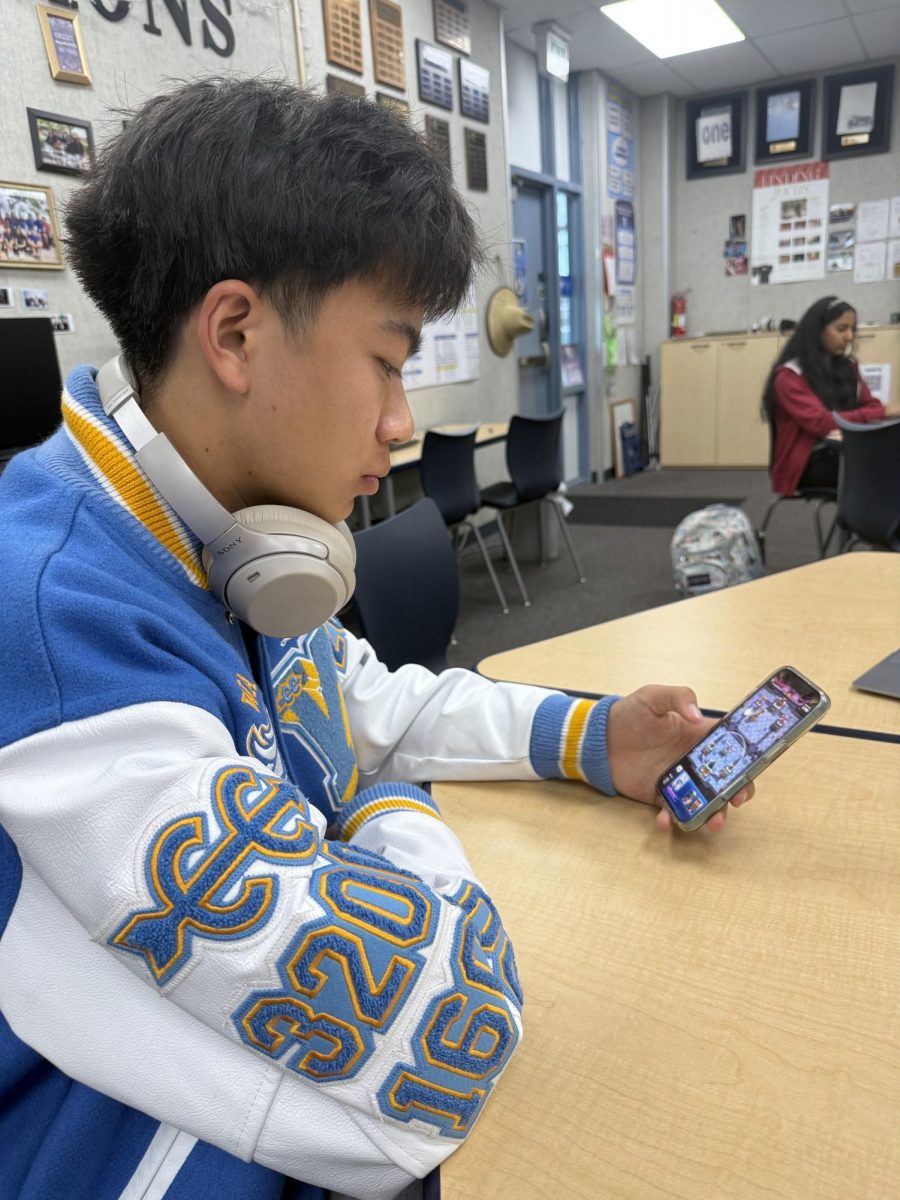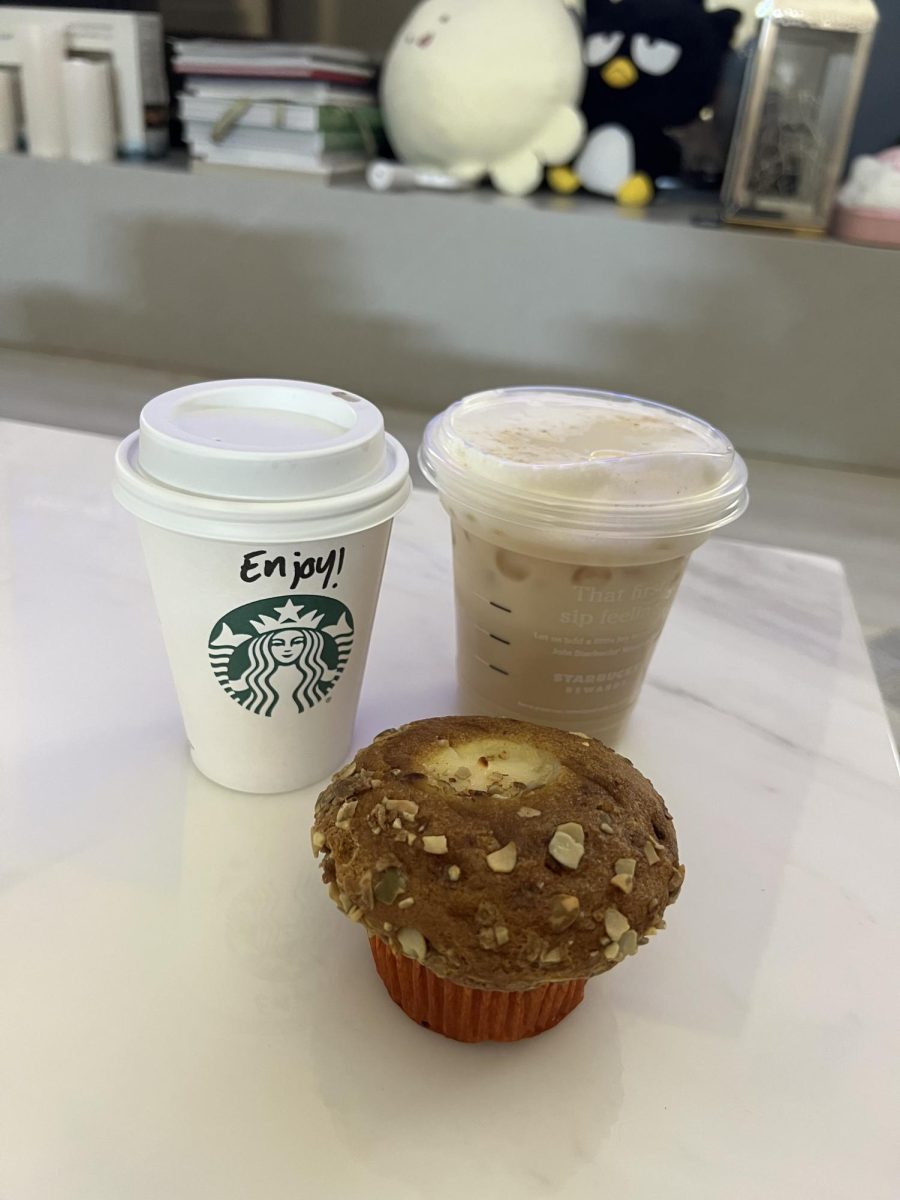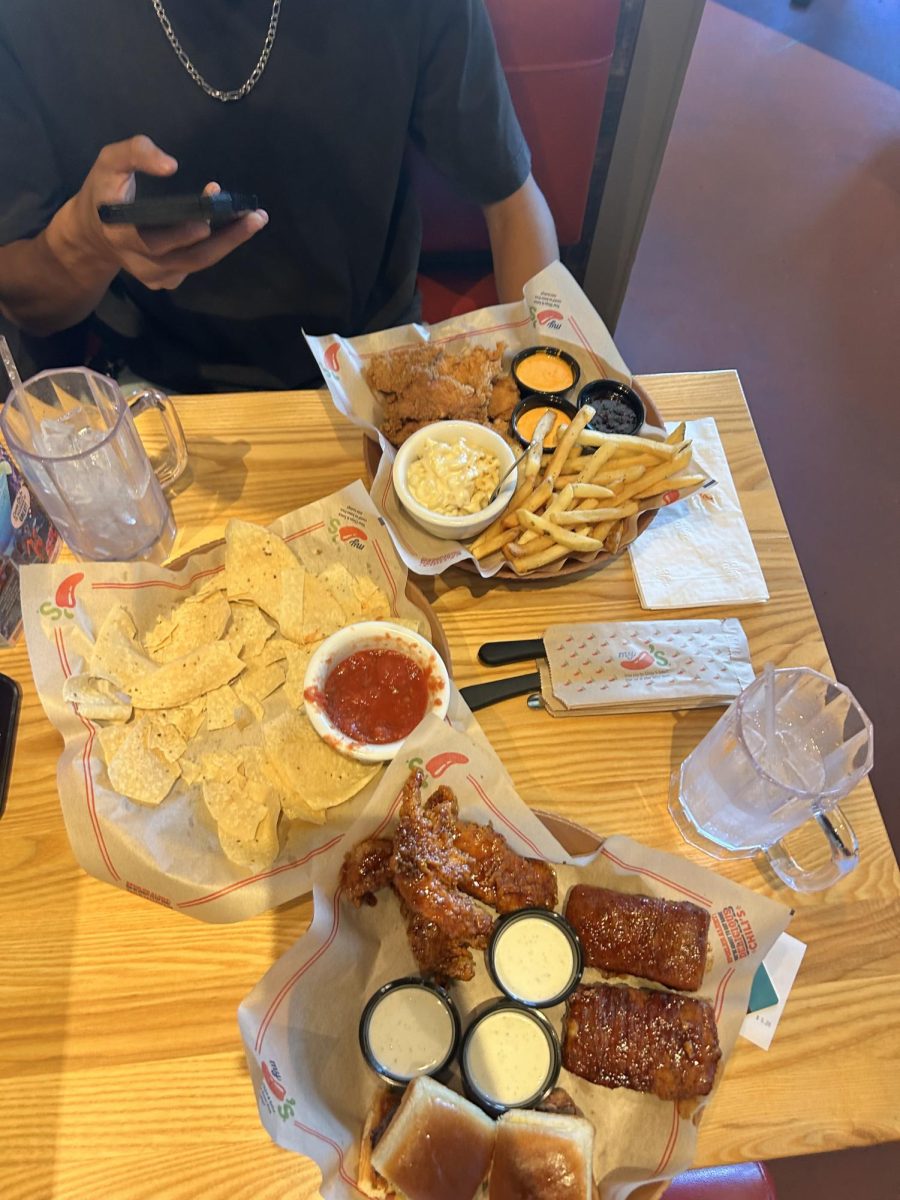Fourteen-time Grammy Award-winning singer-songwriter Taylor Swift released her new album “The Life of a Showgirl” on Oct. 3, along with “The Official Watch Party of The Life of a Showgirl,” released in movie theaters across the world. Before watching the movie, I was unsure of the album after hearing mixed reviews of it from my friends and fans on the internet, but I felt like this album was really thoughtful and reflective on her life, as well as being an overall combination of her different eras.
Using her recent world tour, “The Eras Tour,” as inspiration, Swift created her album to act as a self-reflection for everything she experienced during her life. The tour is also where she met her now-fiancé Travis Kelce and experienced a turning point in her life that changed the mood of her music: this era focused more on a lighter side of her life, relating to her more stable and joyful life outside of her career. After many heavily emotional albums, such as “evermore” and “The Tortured Poets Departments”, I was glad to listen to a more upbeat album that combines themes of a few of her previously released albums, such as “1989 (Taylor’s Version),” “folklore,” and “Speak Now (Taylor’s Version).”
With a total of 12 songs, the album opens up with “The Fate of Ophelia,” a reference to the play “Hamlet” by William Shakespeare. Swift portrays another ending of the story in which one of the characters, Ophelia, doesn’t drown to death after being driven mad, but rather is saved by love. With many previous references to Shakespeare in the past, an entire song being dedicated to a character from a Shakespearean play isn’t surprising, but I do think that it offers a unique take on the story. More than the catchy tunes, I really appreciate the lyrics and meaning behind the music; I especially enjoy the references and storyline she weaves into this song. I thought this song had a certain tonal quality that felt like something Sabrina Carpenter would write, but I overall liked the meaning and symbolism behind the song. However, one of her songs, “The Life of a Showgirl,” did feature Sabrina Carpenter.
In “The Official Watch Party of The Life of a Showgirl,” Swift delves into the behind-the-scenes of the making of the music video. In each scene, Swift describes how the start of the music video is the painting of Ophelia as a showgirl lying there to be painted, followed by each scene progressing further along into the current era of showgirls.
According to Swift, there are over 100 easter eggs in the music video. As a Swiftie, I’ve watched the music video several times, finding something new with each replay. I really liked how Swift went through each scene and expressed her own thought process behind each scene because the informal recordings of her trying to refilm scenes with minor improvements let you see who she is as a person and an artist.
“The Eldest Daughter” reflects sincerely on how people put on a “mask” when talking to others in order to try to feel more accepted and perceived as cooler. I thought a lot of these lyrics applied to many people, and I liked her honesty with her lyrics. Swift uses some of her personal, raw feelings in this song to talk about this. Lines like, “Sad as it seems, apathy is hot/Everybody’s cutthroat in the comments/Every single hot take is cold as ice” portray the extremeness of this.
However, after Formula 1’s recent gain in popularity, it also had me wondering whether the line “Smooth Operator” was just an overused cliche put in to try to gain more popularity with the song, especially because it doesn’t fit in with the rest of the song either. This track gave a more sincere feel, similar to her previous album, “Speak Now.”
In the movie, Swift describes the track “CANCELLED!” as a reference to cancel culture that has evolved to not only affect public figures but also common people. She describes how, because of the experiences she and her close friends have faced with cancel culture, it has helped her realize not to listen to judgment or rumours about other people and to experience it yourself. In the song, she says, “Good thing I like my friends cancelled/I like ’em cloaked in Gucci and in scandal”. She refers to how it’s a “Good thing I like my friends cancelled,” referring to the negative experiences Swift and her close public figure friends have faced.
While many fans think lyrics like “Did you girlboss too close to the sun?” and “Come with me, when they see us, they’ll run/Something wicked this way comes” were just cliché and overused, I felt like they brought out Swift’s true personality. However, I did think this track sounded similar to a previous album by her, titled “reputation”, and felt reused with the backing track.
On the other hand, the tracks “Actually Romantic” and “Honey” were my least favorites because of the references they made that I felt were unnecessary due to their explicit references, which just felt like it shifted the main message of the album.
Overall, I would rate this album an eight out of 10. I really like how this album acted as a self-reflection for Swift on her life, with enough generalization that her audience can relate to it, but I disliked some tracks like “Actually Romantic” and “Wood” because of their lyrics, though they had a constant backing track that made it easy to listen to. The clean and explicit versions for this album also made a huge difference in meaning, but I felt that the explicit version had words added that didn’t really fit, and therefore preferred the clean version over the explicit one. While this was Swift’s first time including more straightforwardly explicit content in her lyrics, I hope to see her produce more non-explicit songs in the future.








